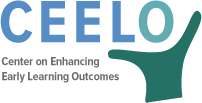This document originates from a state request for information on chronic absenteeism with regard to early childhood. It provides information on potential causes of absenteeism, examples from cities and states to address it, and available resources.
High quality early learning programs promote the developmental and academic success of young children birth through third grade. Research points to key factors that influence child outcomes, including the professional expertise of the adults, the rigor of curriculum based standards, the involvement of families, and the attention to the social-emotional and physical health needs of children. A preponderance of evidence has emerged on the effects of well-implemented early learning programs to inform state and local decision-makers.
Retention in the Early Years: Is Early Retention an Effective, Research-Based Strategy for Improving Student Outcomes?
Retention in the Early Years: Is Early Retention an Effective, Research-Based Strategy for Improving Student Outcomes? reviews literature on research and practice about the effects of early retention, and highlight considerations that make retention a nuanced rather than definitive research based approach to enhancing student outcomes.
Early Childhood Suspension and Expulsion
This annotated bibliography identifies selected research studies and federal and state policy resources on early childhood suspension, expulsion, and discipline and what can be done to prevent these practices.
Using Technology in Early Childhood Classrooms
This annotated bibliography provides resources and information about using technology in early education classrooms. It highlights issues to consider when introducing new tools, media, and devices, so that educators and policymakers can make informed decisions about using such resources, and preparing teachers and care providers to do so.
Is Retention in the Early Years an Effective Research-Based Approach for Improving Student Outcomes?
This talk presents what research had to say about the practice of retention, and shares state and local approaches, including early identification and intervention strategies. Jim Squires supported the Southeast Regional Comprehensive Center’s online Community of Practice for SEA early education leaders during this interactive session.
Resources for Supporting Teachers and Administrators to Improve Outcomes for Dual Language Learners in Pre-K through Third Grade
This annotated bibliography identifies selected resources on best practices and policy to support effective teaching and learning for dual language learners (DLL) in early childhood programs and early elementary school.
Kindergarten as a Critical Link
This presentation focuses on ways that school districts can develop kindergarten policies to both support alignment across the early grades and ensure effective transitions for children and families into elementary school. The session highlights ten policies that support, promote, and enhance the learning and joy of learning for all kindergarten children, leading to positive child outcomes for all. Panelists share how districts and school are enacting and implementing these policies, with a discussion of strategies, approaches, and outcomes. Melissa Dahlin and Shannon Riley-Ayers gave this presentation at the Ounce of Prevention’s Excellence in the Early Grades District Leadership Summit with Vincent Costanza (New Jersey Department of Education), Anne Arnold (Highline Public Schools, WA), and Rick Falkenstein (Kingwood Township School District, NJ).
Best Practices for Supporting Teachers and Administrators to Improve Outcomes for Dual Language Learners in PK-Grade 3
This presentation highlights research on training DLL teachers, describes best practices for teachers and administrators to support development of English and children’s home language, shares a tool for coaching and professional development of teachers, and discusses policy trends and recommendations for improving outcomes of dual language learner children.
Incorporating Early Learning Strategies in the School Improvement Grants (SIG) Program
This report features case studies of three selected schools receiving SIG funds that have, with the support of their districts, promoted the use of early childhood programming (PK–3) as a key strategy in their schools’ turnaround models. The goal of this document is to increase the awareness and understanding of how to effectively embed PK–3 strategies in school turnaround efforts within the SIG program. CEELO collaborated with the Center on School Turnaround (CST) to develop the case studies.
December 10, 2014 letter from U.S. Assistant Secretary for Elementary and Secondary Education commending the case studies to colleagues.
Young Immigrants and Dual Language Learners: Participation in Pre-K & Gaps at Kindergarten Entry
This webinar presents data that looks at how children from various language and immigrant backgrounds participate in pre-K programs and at how these children perform relative to their White peers at Kindergarten entry.
The Impact of Policy on the Class of 2027: Early Care and Education in South Carolina
This presentation details policy mechanisms that lead to improved child outcomes. The presentation discusses young children’s brain development, dimensions of readiness, elements and measurements of quality, the P-20 approach, and other areas policy can impact. It also includes information on return on investments in early childhood for South Carolina. Jim Squires presented at the Early Childhood Common Agenda Forum South Carolina Children’s Trust.
Facts About Fadeout
This document explores what the research says about the lasting benefits of high-quality early education programs. As interest in pre-K continues to grow, policymakers ask whether the benefits “fadeout” in elementary school. This document presents the research findings on effect size over time as well as what factors in a pre-K program are likely to foster lasting benefits.
